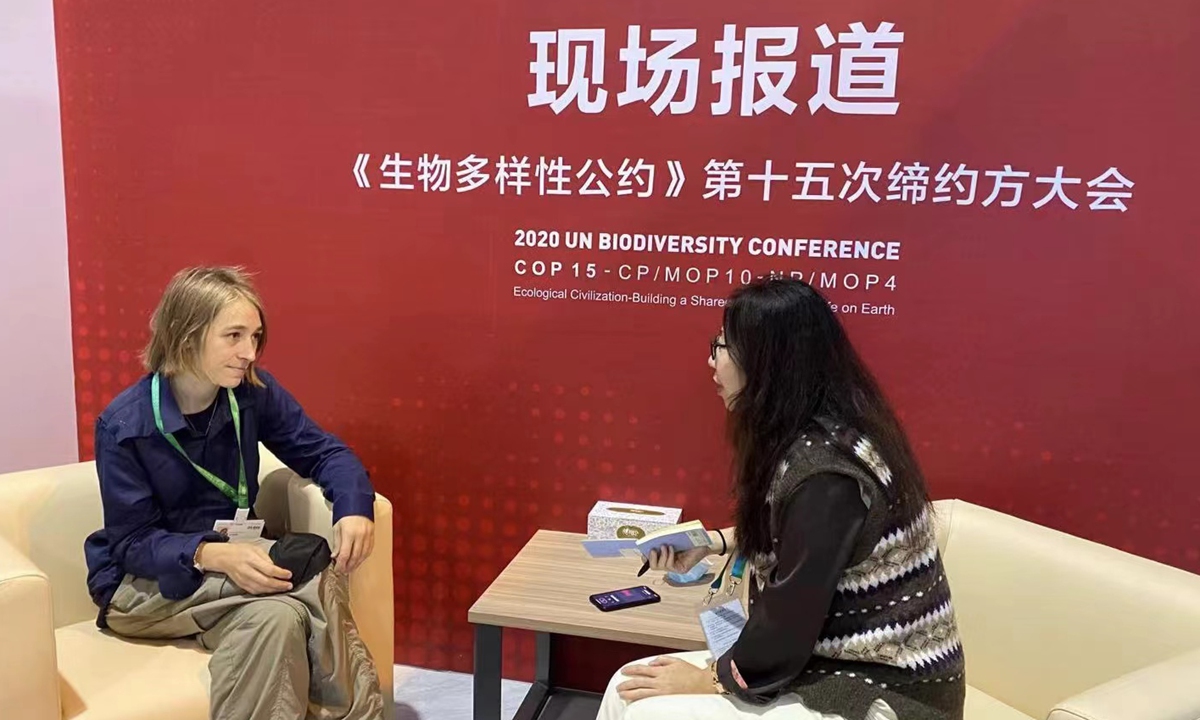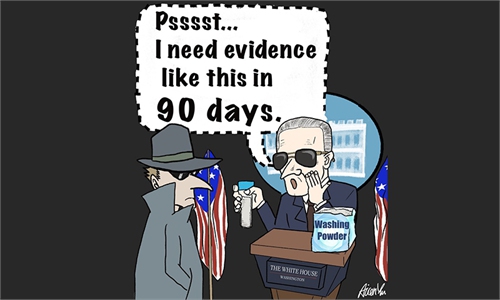
Alice Hughes (left), executive secretary general of China Biodiversity Conservation,talks with Global Times on Monday. Photo: Xu Liuliu/GT
A British zoologist who has long been engaging in bats researches refuted scapegoating China for the spread of the COVID-19 pandemic, saying there is no evidence to show that wildlife trade did play a role in causing the pandemic and that bats are found in multiple regions including Europe, Africa, Southeast Asia and Australia.
The zoologist called on countries to jointly protect the habitat of different species and to work as a global community to make sure we don't see spillover events in the future.
Alice Hughes, executive secretary general of China Biodiversity Conservation and Green Development Foundation and British zoologist at the Xishuangbanna Tropical Botanical Garden in Yunnan Province, made the remarks in an interview with the Global Times on Monday.
She said there is no concrete evidence to show that wildlife trade played a role in causing the COVID-19 pandemic, but we should be more cognizant of eating wildlife because doing so could easily spread zoonotic diseases. And "that applies to all countries as there are still a lot of countries that consume large amounts of wildlife," Hughes said.
Bats are found in many areas ranging from Europe, Africa and all the way to Australia. And Southeast Asia has very diverse communities of bats, she said.
Some Western media have been accusing China of wildlife trade and causing the COVID-19 pandemic since early 2020.
A Nature report on COP15 claimed that much of the world's illicit wildlife trade is "driven by Chinese demand for traditional medicines and delicacies," and claimed that China's wildlife trade and consumption contributed to the pandemic.
China's top legislature in February 2020 adopted a decision on thoroughly banning the illegal trading of wildlife and eliminating the consumption of wild animals.
Hughes said that virus found in bats are very close ancestors to SARS-CoV-2, but we do not know how it spilled over to humans, and we don't know if the virus went directly from bats to humans or if it went through an intermediate host.
"What we cannot do is let this become a political issue … We need to stop saying "it's your fault" because that doesn't help us. We need to say, 'let's identify why this happened,'" she said.
What we can do is we can learn how to be better environmental students and we need to make sure we are protecting the habitat of wild species; otherwise we will stop ourselves finding a constructive solution if we keep blaming other countries, Hughes said.



